London has emerged as one of the most dynamic and rapidly evolving hubs for biotherapeutics companies, not just in the UK but globally. With a unique blend of academic excellence, innovation-driven startups, established pharmaceutical players, and strong government support, the city is a magnet for advanced therapeutic research.
Biotherapeutics including gene therapies, monoclonal antibodies, and cell-based treatments are revolutionising modern medicine by offering highly targeted and often personalised healthcare solutions. In this blog, we take a closer look at the current landscape of leading companies in London, their innovations, and the broader impact they’re having on the future of medicine.
What Makes London a Hub for Biotherapeutics Companies?

London’s appeal as a global biotherapeutics centre is no accident. Its ecosystem combines leading universities, world-class research institutions, state-of-the-art infrastructure, and a highly skilled workforce.
Universities such as University College London, Imperial College, and King’s College London continually produce a stream of life sciences graduates who feed directly into the city’s biotech and pharmaceutical sectors.
London benefits greatly from research powerhouses like the Francis Crick Institute, which bridges academic discovery with industry innovation through cross-sector collaboration.
Proximity to the NHS and government agencies such as the Medicines and Healthcare products Regulatory Agency (MHRA) also supports a highly responsive regulatory environment, which is particularly important for biotherapeutics due to their complex nature and development cycles.
How Are Biopharmaceutical Companies Advancing Healthcare in the UK?

Biopharmaceutical companies in London are leading the charge in a shift from traditional chemical-based drugs to biological therapies derived from living cells and organisms. This evolution in drug development is paving the way for treatments that are more precise, less invasive, and tailored to individual patients.
One of the most impactful contributions has been in the area of oncology. Biotherapeutics such as immune checkpoint inhibitors and CAR-T cell therapies are offering hope to patients with previously untreatable cancers. Similarly, gene therapies are addressing rare genetic disorders at the molecular level, potentially offering lifelong cures instead of symptom management.
In the field of autoimmune and chronic diseases, monoclonal antibodies are allowing for treatments that directly interact with specific proteins or receptors involved in inflammation and immune response. This has dramatically improved outcomes for conditions like rheumatoid arthritis and Crohn’s disease.
Which Are the Top 10 Biotherapeutics Companies in London?
1. Autolus Therapeutics – “Reprogramming Cells to Fight Cancer”

Autolus Therapeutics is a leading clinical-stage biopharmaceutical company specialising in engineered T-cell therapies to combat blood cancers. Born out of University College London research, the company has developed a unique T-cell engineering system that enhances targeting precision while reducing unwanted immune responses.
Its lead programme, AUTO1, is showing promising clinical results in acute lymphoblastic leukaemia. Autolus combines immunology, synthetic biology, and oncology to deliver cutting-edge treatments tailored to patient needs.
The company maintains full control over its process with a manufacturing site in Stevenage. It has successfully secured international collaborations and funding rounds to expand operations. Autolus is reshaping how cancer is treated with smarter, safer immune-based approaches.
Expertise Area
Advanced T-cell engineering for haematologic cancers.
Best Suited For
Patients seeking personalised immunotherapies in oncology.
Pricing: Clinical-stage, not publicly available.
- Website: www.autolus.com
- Phone: +44 (0)20 3829 6230
- Address: The MediaWorks, 191 Wood Ln, London W12 7FP, United Kingdom
- Email: contact@autolus.com
Review: ★★★★★
“Autolus is leading the way in the personalised cancer therapy revolution. Their clinical trial results are promising and impactful.”
2. Orchard Therapeutics – “Curing Rare Diseases at the Genetic Level”
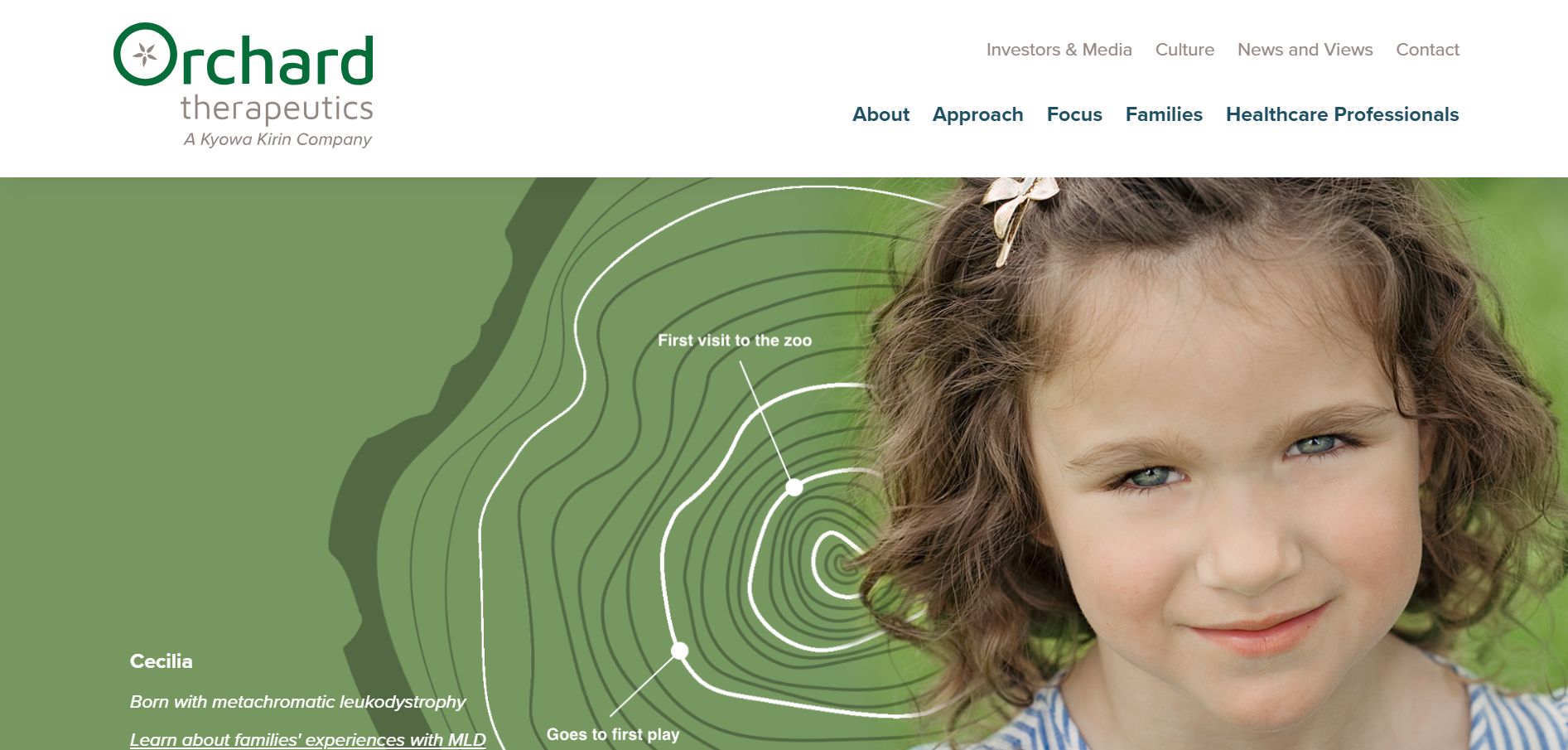
Orchard Therapeutics focuses on developing gene therapies for rare genetic disorders, particularly in paediatrics. They use a personalised strategy where a patient’s stem cells are genetically adjusted to fix disease-causing mutations before being reinfused to restore function.
One of its flagship treatments, Libmeldy, offers a potentially curative option for metachromatic leukodystrophy (MLD) and has received both US and EU regulatory approvals. The company collaborates with clinical institutions across the world to deliver complex therapies with precision. Orchard’s therapies aim to halt disease progression before irreversible damage occurs, especially in young children.
Their mission is to transform the lives of patients who have had limited or no treatment options. As a pioneer in this field, Orchard is placing the UK at the centre of global rare disease treatment.
Field of Focus
Genetic medicine for ultra-rare inherited disorders.
Most Beneficial For
Children diagnosed with severe neurodegenerative genetic diseases.
Pricing: Libmeldy priced around £2.8 million per patient.
- Website: www.orchard-tx.com
- Phone: +44 20 3384 6700
- Address: 245 Hammersmith Rd, London W6 8PW, United Kingdom
- Email: info@orchard-tx.com
Review: ★★★★☆
“A beacon of hope for families with children affected by rare genetic diseases — their treatments are revolutionary, though expensive.”
3. Immunocore – “TCR Therapies That See What Others Miss”

Immunocore is pioneering a class of immune-oncology therapies based on T-cell receptors (TCRs). One of their major milestones is Kimmtrak (tebentafusp), which became the first treatment for metastatic uveal melanoma to gain FDA approval. Immunocore’s ImmTAC platform targets peptide-HLA complexes, expanding the druggable target space beyond what antibodies and CAR-T therapies can typically reach.
The company’s novel biology enables precise redirection of the immune system against tumour cells. With multiple clinical trials ongoing in oncology, infectious diseases, and autoimmune disorders, Immunocore stands at the forefront of immune innovation.
The company’s ability to address challenging cancers and “invisible” cellular targets sets it apart in the biotech landscape. It operates across research, development, and commercial delivery globally.
Therapeutic Angle
TCR-based immunotherapies for solid tumours and chronic infections.
Preferred For
Hard-to-treat cancers with limited existing treatment options.
Pricing: Kimmtrak costs approx. £240,000 per course.
- Website: www.immunocore.com
- Phone: +44 (0)1235 438600
- Address: 92 Park Drive, Abingdon, Oxfordshire OX14 4RY, UK
- Email: medical.information@immunocore.com
Review: ★★★★★
“Kimmtrak has changed the prognosis for uveal melanoma patients — it’s a scientific breakthrough in every sense.”
4. Achilles Therapeutics – “Targeting Tumours with Precision T-Cells”

Achilles Therapeutics is known for developing highly personalised T-cell therapies that attack clonal neoantigens unique tumour mutations. These mutations are identified through a detailed sequencing process and used to engineer patient-specific treatments. This cutting-edge method offers high precision in targeting cancer cells while sparing healthy tissues.
Achilles currently runs clinical trials in non-small cell lung cancer and melanoma, both of which are areas with urgent need for novel therapies. Their platform blends genomic data, machine learning, and immunology to deliver powerful treatment potential.
The company’s commitment to tailoring each therapy to a patient’s individual cancer profile sets a new standard in personalised medicine. It continues to attract research and investment attention from around the globe.
Core Innovation
Personalised cell therapies targeting unique cancer mutations.
Intended Patient Group
Individuals with high-mutational solid tumours like NSCLC or melanoma.
Pricing: Still in clinical trial phase.
- Website: www.achillestx.com
- Phone: +44 (0)203 900 3881
- Address: 245 Hammersmith Rd, London W6 8PW, UK
- Email: queries@achillestx.com
Review: ★★★★☆
“Achilles is pushing the frontier in tumour-personalised therapy. It’s still early, but the science is incredibly promising.”
5. Spur Therapeutics – “Precision-Driven Solutions for Complex Diseases”
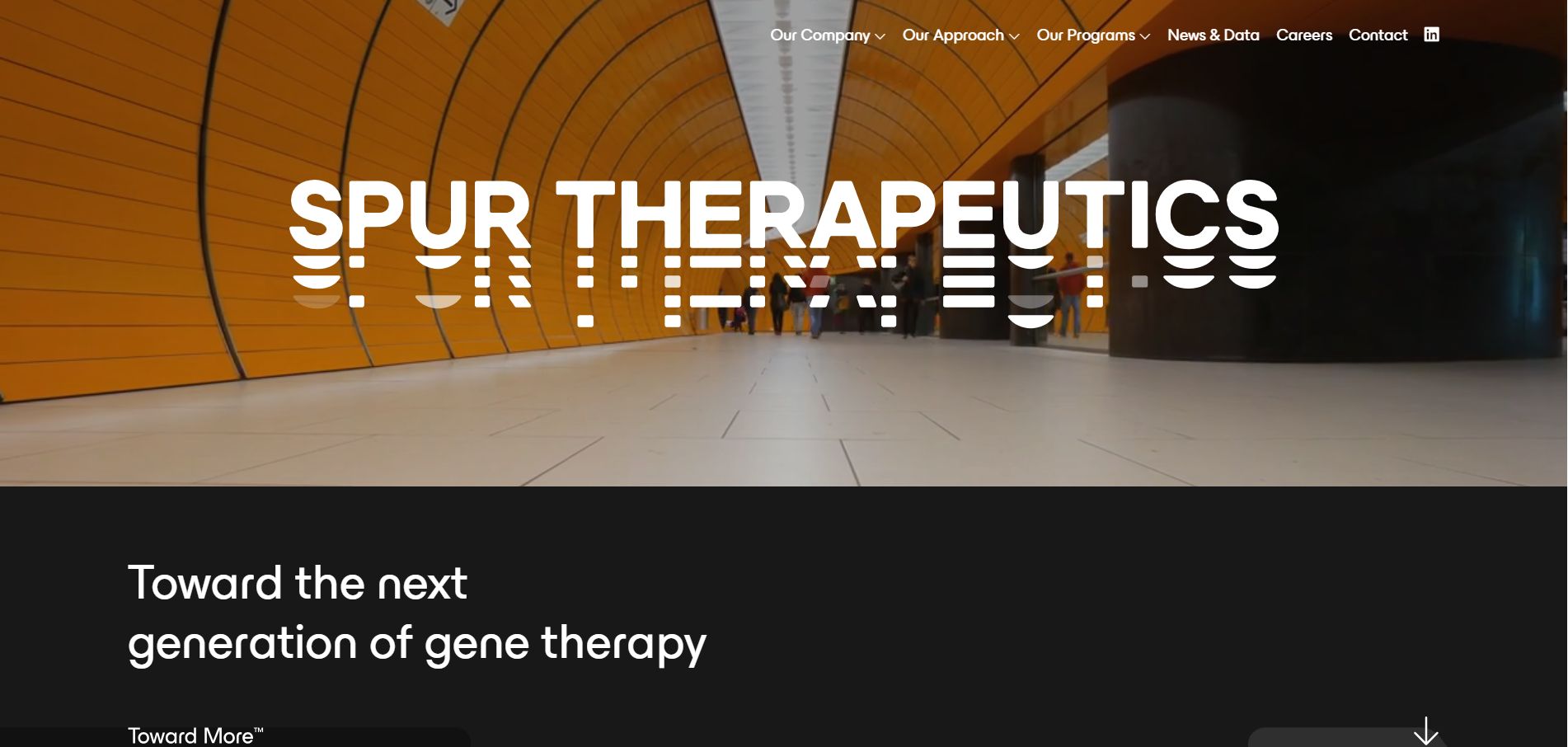
Spur Therapeutics is a London-based biotech company focused on developing next-generation biologic therapies aimed at treating complex and underserved conditions. At the heart of Spur’s approach is a commitment to precision science designing treatments that modulate cellular pathways with high specificity and efficacy.
The company’s pipeline includes biotherapeutics for inflammatory and immune-related diseases, with early-stage research expanding into rare genetic conditions. Spur operates with a translational mindset, meaning it works to rapidly bridge preclinical discovery with clinical application.
Leveraging partnerships with academic institutions and CROs, Spur brings together cutting-edge molecular biology and data-driven platforms. While still in growth phase, the company is already gaining attention for its lean innovation model and therapeutic clarity. Spur’s agility makes it a rising player in London’s biotech ecosystem.
Research Focus
Novel biologics for inflammation, immunology, and rare diseases.
Ideally Suited For
Early access programmes and research partnerships in biotherapeutics.
Pricing: Not applicable – pre-commercial research phase.
-
Website: https://spurtherapeutics.com
-
Phone: +44 (0)1438 906870
-
Address: London, United Kingdom
-
Email: contact@spurtherapeutics.com
Review: ★★★★☆
“Spur Therapeutics may be early-stage, but their scientific direction is focused and forward-looking — definitely one to watch.”
6. Adaptimmune – “Turning T Cells into Targeted Weapons”
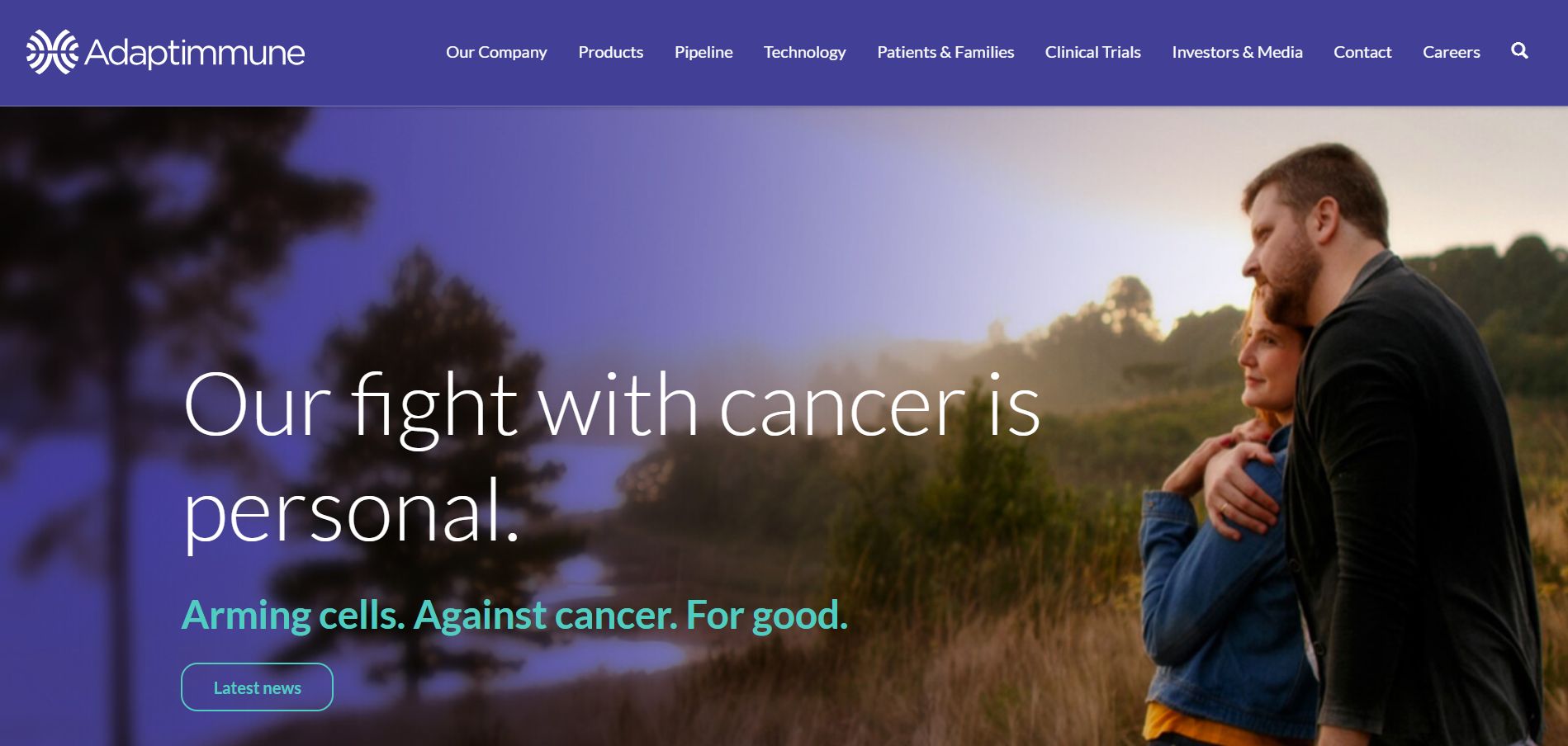
Adaptimmune is engineering T-cell receptors (TCRs) to fight solid tumours, expanding immunotherapy’s reach beyond blood cancers. Its proprietary SPEAR (Specific Peptide Enhanced Affinity Receptor) T-cell platform enhances natural T-cell recognition of cancer antigens. The company has a growing pipeline addressing cancers like synovial sarcoma and ovarian cancer.
Adaptimmune is also engaged in strategic partnerships with global pharmaceutical companies to fast-track therapy development and market access. Its clinical trial results have shown strong T-cell persistence and tumour regression in difficult-to-treat cancers.
The company combines molecular biology and patient-specific insights to improve the safety and efficacy of T-cell therapy. It continues to lead the charge in TCR-based oncology from its London headquarters.
Distinctive Approach
Affinity-enhanced T-cell receptors for solid cancer types.
Ideal Candidate Group
Patients with difficult-to-treat solid tumours lacking targeted options.
Pricing: Not available to public; under evaluation.
- Website: www.adaptimmune.com
- Phone: +44 (0) 1235 430000
- Address: 91 Park Drive, Milton Park, Abingdon, OX14 4RY, UK
- Email: info@adaptimmune.com
Review: ★★★★☆
“Adaptimmune brings cutting-edge T-cell therapy into mainstream oncology — very exciting pipeline.”
7. Quell Therapeutics – “Rebalancing the Immune System Safely”
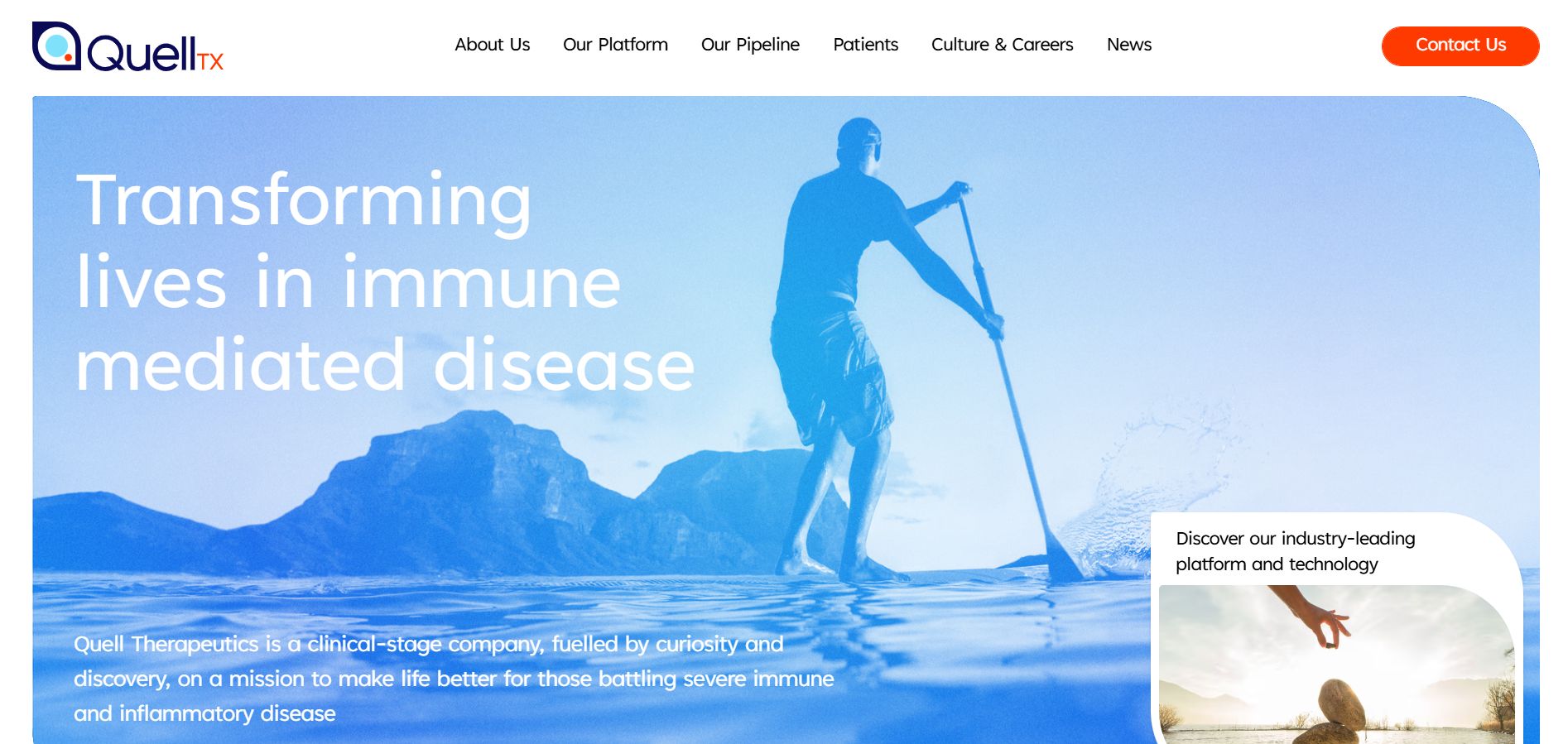
Quell Therapeutics is reimagining immune tolerance through engineered regulatory T cells (Tregs). Their unique platform designs Tregs to suppress specific immune responses without compromising the entire immune system. Their precision-modulated immune cell therapies hold strong potential for conditions like transplant rejection, chronic inflammation, and immune-mediated diseases.
The company’s therapies are programmed to home in on affected tissues, improving efficacy while reducing risks associated with broad immunosuppression. Founded in 2019, Quell has quickly become a standout in the London biotech scene with significant funding and strong academic partnerships.
Its precise and controlled immune modulation could redefine how chronic immune-related diseases are treated. The platform is still in clinical trials, but its potential is widely acknowledged across immunology and transplantation fields.
Innovation Zone
Cell engineering of regulatory T cells to restore immune balance.
Optimal For
Patients needing immune suppression without broad immunosuppression.
Pricing: Not available; clinical-stage development.
- Website: www.quelltx.com
- Phone: 0207 096 9012
- Address: Level 3, Translation & Innovation Hub, 84 Wood Ln, London W12 0BZ, UK
- Email: contact@quell-tx.com
Review: ★★★★★
“One of the most thoughtful approaches to immune therapy. Precision without overkill — exactly what’s needed.”
8. ReViral (A Pfizer Company) – “Combating RSV with Smart Antivirals”
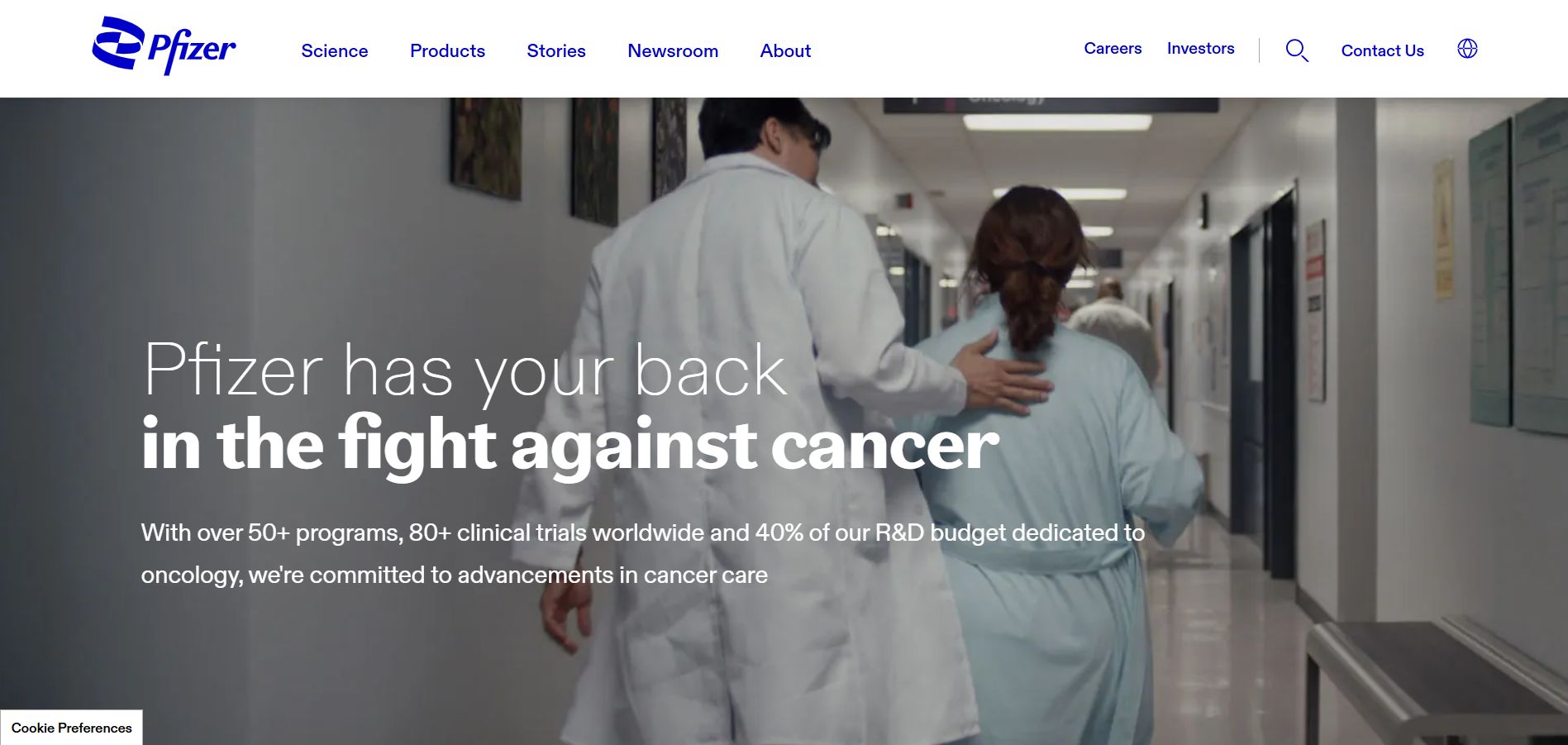
ReViral, now operating under Pfizer, focuses on developing antiviral drugs to treat respiratory syncytial virus (RSV), a serious illness especially affecting infants and the elderly. Unlike preventive vaccines, ReViral’s oral therapies aim to treat RSV once symptoms appear, targeting the virus’s replication machinery.
Its lead compound, sisunatovir, has shown effectiveness in reducing viral load and is currently in advanced clinical trials. ReViral’s approach is rooted in real-world needs a fast, effective, and easy-to-administer antiviral.
The company also contributes significantly to public health by helping reduce RSV-related hospitalisations and complications. Now backed by Pfizer’s scale and resources, ReViral is expected to accelerate toward global distribution in the coming years.
Focused Domain
Small-molecule antivirals for respiratory viruses.
Well-Suited For
Hospitals and caregivers managing seasonal viral outbreaks.
Pricing: In clinical trials; not yet available.
- Website: www.pfizer.com
- Phone: +44 (0)1304 616161
- Address: 1 Kingdom Street, London W2 6BY, UK
- Email: Not publicly listed
Review: ★★★★☆
“Finally, a therapy that could make RSV manageable — particularly in vulnerable populations.”
9. MeiraGTx – “Gene Therapy From Lab to Clinic”
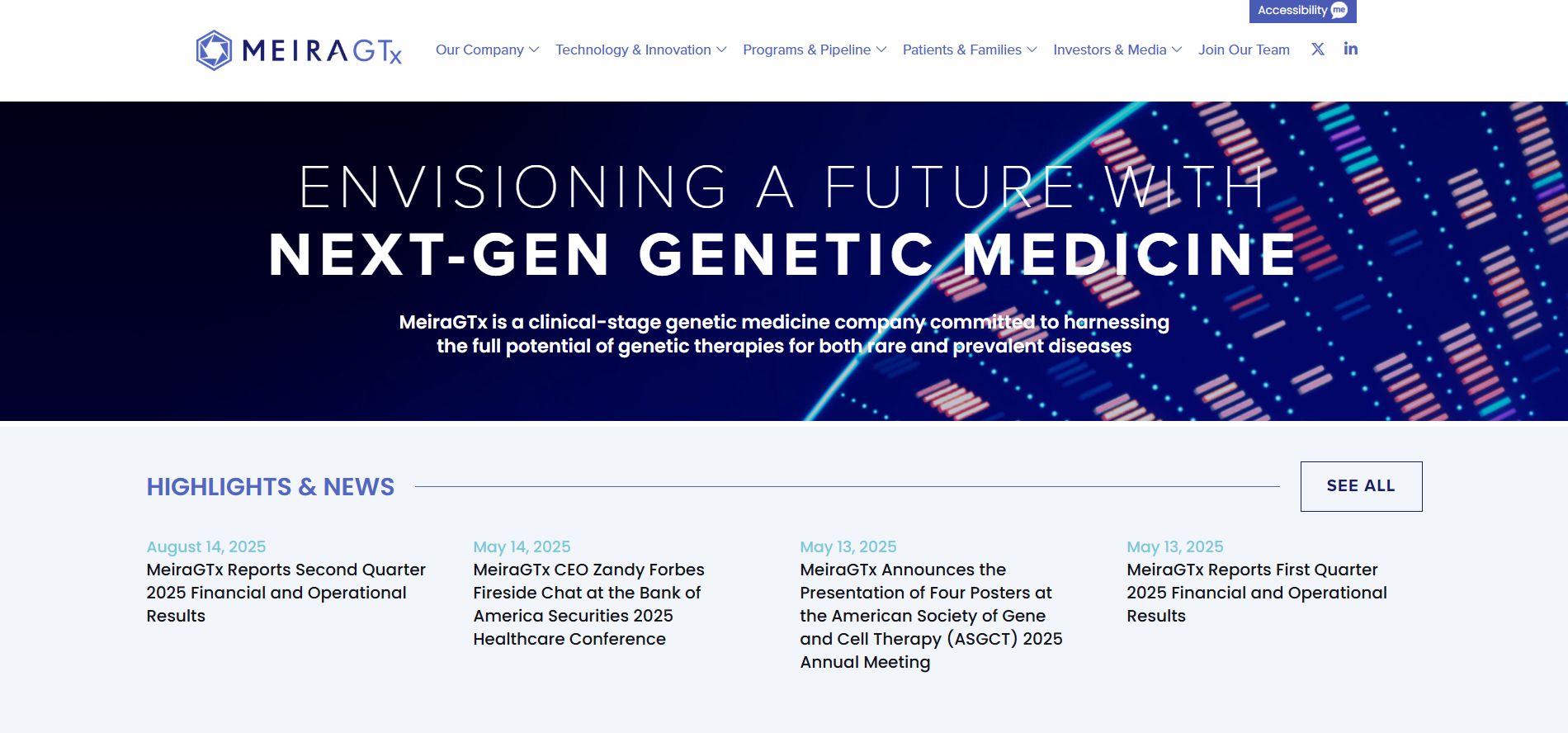
MeiraGTx is a vertically integrated gene therapy company with operations in London and the US. It is focused on a broad pipeline spanning ophthalmology, neurodegenerative diseases, and salivary gland conditions. What sets MeiraGTx apart is its control over the full therapeutic lifecycle from early-stage discovery to manufacturing and distribution.
Their therapies involve using viral vectors to deliver functional genes into specific tissues to restore or replace faulty genes. They’re advancing treatments for inherited retinal disorders and Parkinson’s-related conditions, supported by robust in-house GMP manufacturing.
The company’s translational efficiency allows faster movement from the lab to clinic, ensuring both safety and scalability. MeiraGTx is well-positioned for commercial launches in the coming years.
Area of Impact
Integrated development of gene therapies across multiple indications.
Target Users
Clinicians and patients seeking stable gene therapy solutions.
Pricing: Not publicly disclosed; therapies in development.
- Website: www.meiragtx.com
- Phone: +44 (0)20 3457 7990
- Address: 92 Britannia Walk, London N1 7NQ, UK
- Email: info@meiragtx.com
Review: ★★★★☆
“MeiraGTx stands out for owning the whole value chain — from bench to bedside.”
10. Avacta Life Sciences – “Engineering the Next-Gen Affimer Therapeutics”
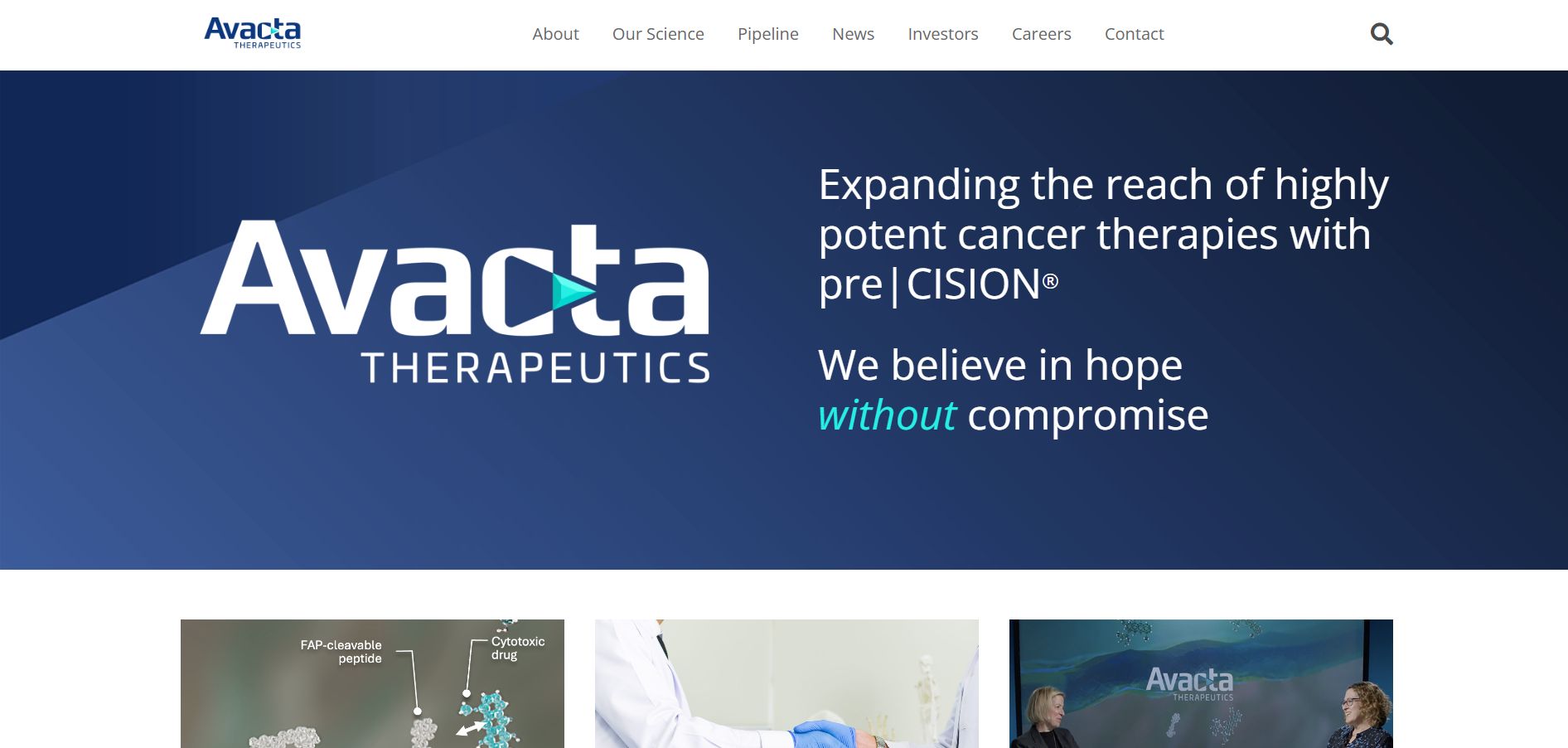
Avacta is an emerging leader in the development of Affimer® therapeutics novel, engineered protein scaffolds designed to mimic antibodies. These molecules are smaller, more stable, and easier to manufacture, making them ideal for targeted cancer therapy and diagnostics.
Avacta’s lead candidate, AVA6000, is in clinical trials and aims to improve chemotherapy delivery by reducing systemic toxicity. The company gained further visibility during the COVID-19 pandemic through its rapid antigen test technology.
With R&D operations in London and headquarters in Yorkshire, Avacta is bridging the gap between diagnostics and therapeutic biologics. Their innovations are helping personalise treatment while making it more affordable and scalable across different sectors of healthcare.
Technological Focus
Affimer protein platforms for therapeutics and diagnostics.
Best Applied In
Oncology and rapid-response diagnostics requiring stability and specificity.
Pricing: Customised per product/service; varies by client.
- Website: www.avacta.com
- Phone: +44 (0)20 3911 0353
- Address: College Campus, Scale Space, White City Imperial, 58 Wood Ln, London W12 7RZ, United Kingdom
- Email: contact@avacta.com
Review: ★★★★☆
“From diagnostics to precision therapeutics, Avacta is punching above its weight in innovation.”
How Do These Firms Contribute to Biotherapeutic Innovation in the UK?
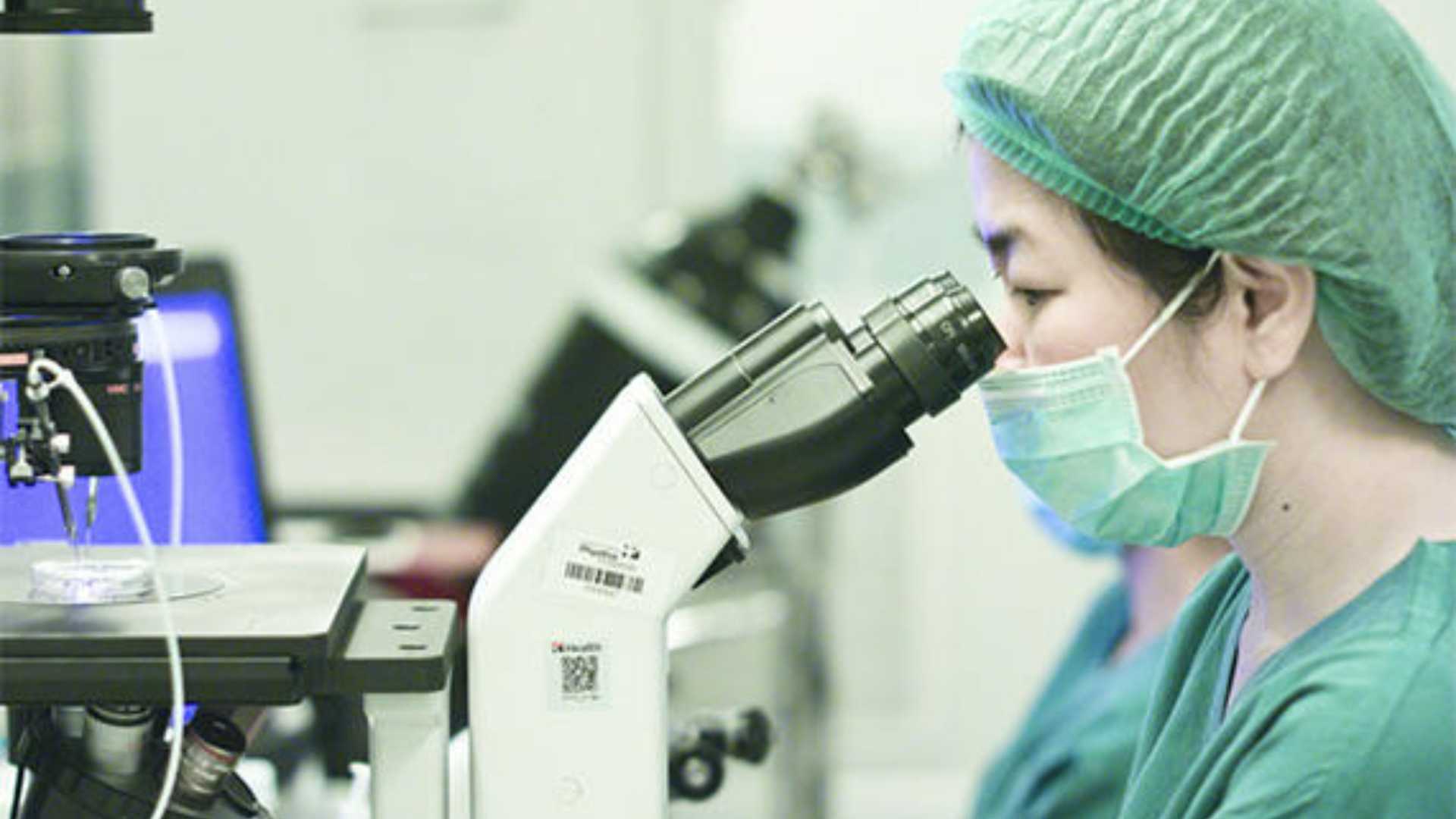
These companies not only develop life-saving drugs but also serve as engines of innovation for the entire UK healthcare ecosystem. Their contributions extend from early-stage research to full-scale clinical trials and eventual commercial deployment of advanced therapies. Many of them engage in cross-disciplinary collaborations with hospitals, academic institutions, and global pharmaceutical giants.
They are also vital players in talent development, offering training opportunities and fostering a skilled workforce in biotechnology, molecular biology, regulatory affairs, and clinical operations. Furthermore, the intellectual property generated by these firms strengthens the UK’s global leadership in life sciences, attracting additional investment and reinforcing the cycle of innovation.
What Should You Look for in a Reliable Biotherapeutics Company?

When assessing biotherapeutics companies whether as a partner, investor, or healthcare provider several key indicators help distinguish leaders from the rest. A reliable firm typically demonstrates scientific rigour and robust research pipelines supported by peer-reviewed data and clinical evidence. Strong leadership teams with experience in biotech, regulatory navigation, and successful product launches are another critical factor.
Transparency is also essential. Companies that regularly publish results, maintain ethical standards, and engage in third-party collaborations tend to be more stable and trustworthy. Moreover, firms that show a clear pathway to commercial scalability including manufacturing capability and market access strategy are more likely to succeed in a competitive landscape.
How Are Biotherapeutics Companies in London Shaping the Future of Medicine?

Biotherapeutics companies in London are at the forefront of transforming medicine from reactive to proactive care. Instead of waiting for diseases to develop and then treating them symptomatically, many of these firms are working on therapies that intervene at the genetic or cellular level, potentially preventing disease progression altogether.
This shift is particularly evident in the growing field of precision medicine, where treatments are tailored to the individual based on genetic makeup, lifestyle, and environment. By integrating technologies like genomics, AI, and real-time diagnostics, London-based firms are contributing to a healthcare future that is not only more effective but also more equitable and efficient.
What Challenges Do London-Based Biotherapeutics Companies Face?

Despite their progress, biotherapeutics companies in London face several persistent challenges. Developing biologics and cell therapies is inherently complex, requiring substantial investment and long development timelines. Regulatory hurdles, particularly around novel therapies, can delay market access and increase costs.
Brexit has also introduced new complications regarding clinical trial regulations, access to European markets, and supply chain logistics. Additionally, competition for top-tier scientific talent is intensifying, not just within the UK but globally. Navigating these obstacles requires strategic foresight, strong stakeholder collaboration, and sustained government support.
Why Should Investors and Researchers Pay Attention to London’s Biotech Sector?

For investors and researchers, London represents a high-potential landscape for long-term returns and meaningful scientific contributions. The city’s biotech firms are not only innovating within their own domains but also setting benchmarks for the global industry. With several companies progressing from clinical to commercial phases, opportunities for mergers, acquisitions, and IPOs are on the rise.
What Are the Key Trends in Biotherapeutics to Watch in 2025 and Beyond?

As we look towards the future, several trends are expected to shape the trajectory of biotherapeutics. One is the rise of AI in drug discovery, which is reducing the time and cost needed to bring new therapies to market. Another major development is the expansion of mRNA technologies into therapeutic areas beyond infectious disease, including cancer and autoimmune disorders.
Gene editing tools like CRISPR are also gaining ground, with potential to correct mutations at the source and offer permanent cures. Additionally, there is growing interest in combining biologics with digital health platforms to monitor treatment efficacy and enhance patient compliance. London’s ecosystem is well-positioned to lead in all of these areas, thanks to its commitment to innovation, collaboration, and global impact.
Conclusion
The growth of biotherapeutics companies in London is a testament to the city’s resilience, creativity, and scientific leadership. From gene therapies and immuno-oncology to engineered cell treatments, these organisations are not only advancing medicine but also enhancing the UK’s global reputation in life sciences. As new challenges and diseases emerge, London is poised to remain a beacon of biotherapeutic innovation for years to come.
FAQs About Biotherapeutics Companies in London
What distinguishes biotherapeutics from traditional drugs?
Biotherapeutics are derived from living organisms and are designed to treat complex diseases through targeted mechanisms, whereas traditional drugs are chemically synthesised and often treat symptoms rather than root causes.
Are biotherapeutics widely available through the NHS?
Some biotherapeutics have been adopted by the NHS, particularly in cancer and rare disease treatments, but access varies depending on approval status and cost-effectiveness assessments.
How long does it take to develop a biotherapeutic?
The development process typically spans 8–15 years due to rigorous testing, clinical trials, and regulatory review, although recent innovations are shortening these timelines.
What kind of diseases can biotherapeutics treat?
Biotherapeutics are being used to treat cancer, genetic disorders, autoimmune diseases, and infectious diseases, among others.
Are London-based companies open to international collaboration?
Yes, many of these firms actively seek global partnerships with academic, commercial, and governmental organisations.
How is the UK government supporting biotherapeutics innovation?
The UK government offers tax incentives, grant funding, and regulatory support for companies engaged in biotherapeutics and advanced therapies.
Can small biotech start-ups compete in this space?
Absolutely. Many of London’s most innovative biotherapeutics companies began as start-ups and have grown through strategic partnerships, funding, and breakthrough discoveries.
